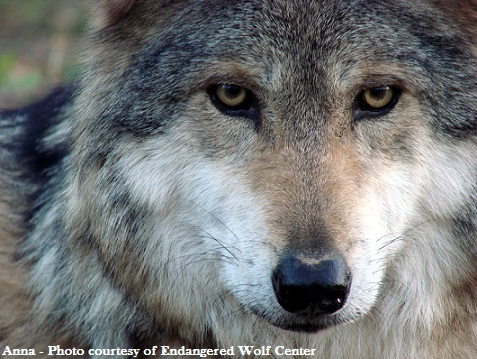10
Oct
In the News: Justice Department Policy on Prosecuting Endangered-Species Hunters Debated

SEATTLE (CN) — A Ninth Circuit panel Tuesday questioned a federal judge’s decision to overturn a Justice Department policy against prosecuting people accused of killing an endangered animal unless it could be proved that the individual knew the animal was endangered.
WildEarth Guardians and the New Mexico Wilderness Alliance sued the U.S. Department of Justice in 2013 over the McKittrick policy, which was enacted after the Ninth Circuit in 1998 upheld the conviction of Chad McKittrick for killing a gray wolf in Montana.
McKittrick testified during his 1995 trial that he thought he was killing a rabid dog, and not a protected gray wolf. He received a six-month prison sentence.
In their lawsuit, the environmental groups claimed the policy removed “the threat of criminal prosecution for would-be wolf killers who are opposed to the reintroduction of the Mexican gray wolf.”
As a result of the policy, only two of 48 shootings of the wolves had resulted in a prosecution under the Endangered Species Act, according to the groups’ complaint.
In 2017, U.S. District Judge David Bury found for the environmental groups, ruling the federal government only has to prove a defendant knew they were taking an animal, and not the animal’s status under the Endangered Species Act.
“(T)he court agrees with plaintiffs that the McKittrick policy is outside the range of prosecutorial authority set out in ESA’s comprehensive conservation scheme because it eviscerates the deterrent effect of the ESA criminal enforcement statutes,” Bury wrote. “In other words, prosecutions prevented by the McKittrick policy result in little to no protection for the Mexican wolf and cause direct and real harm, which is neither speculative nor conjectural, to this protected species.”
In front of a three-judge Ninth Circuit panel Tuesday, Justice Department attorney Kevin McArdle said the department’s position has not changed.
“The department retains the discretion to decide to pursue prosecutions,” McArdle said.
“What evidence is there that shows more people are shooting wolves now as a result of the policy?” asked U.S. Circuit Judge N. Randy Smith.
McArdle said there is none.
“The reasons why people shoot Mexican wolves are unknown because the shooters are not identified in most cases,” McArdle said.
He added that the department has been successfully prosecuting offenders under the Endangered Species Act.
“There has never been a case in the Ninth Circuit that we’ve declined to prosecute (due to McKittrick),” McArdle said.
Matthew Bishop, an attorney for the environmental groups, said the case is a challenge to the department’s adoption of the policy, not a challenge to an individual enforcement action or to undermine prosecutors.
“Your complaint struck me as shooting for the moon,” said U.S. Circuit Judge Morgan Christen.
“We are not aware of any evidence “¦ to suggest that a criminal take case of the kind the policy prohibits was ever pursued,” Bishop said.
Christen replied: “Either that or they didn’t have one referred to them.”
The policy changed that whole decision-making process, Bishop answered.
While the environmental groups did not know about the McKittrick policy for years after it had been in effect, they knew there was a significant problem, he explained.
“No one knew why there weren’t more prosecutions,” Bishop said.
U.S. Circuit Judge Ferdinand Fernandez rounded out the panel, which took the case under submission.
This article was published by Courthouse News



